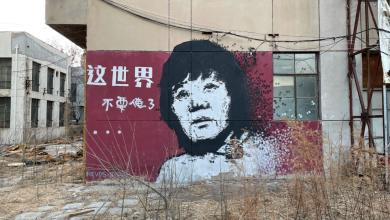Texas Abortion Law Reinstated
Last Thursday, the New York Times reported that the Fifth Circuit Court of Appeals reinstated the portion of Texas’s strict abortion law that was struck down by the Western District Court of Texas. The law came to national attention in June, when Texas State Sen. Wendy Davis led a 13-hour filibuster against the bill, arguing that it left Texas women without access to necessary health care. The law required that abortion doctors need to have admitting privileges to nearby hospitals, and for abortion clinics to register as surgical centers. Davis wrote in an opinion piece for CNN, the law would “close down almost 90% of the women’s clinics in this state.”
In response, Gov. Rick Perry called the state legislature to a special session to pass the bill which in turn sparked protests from pro-choice activists across the nation, as well as a lawsuit filed by Planned Parenthood on behalf of the numerous women’s clinics in Texas.
According to CNN, Planned Parenthood filed the lawsuit arguing that the law violated women’s constitutional rights, and that requiring doctors to have admitting privileges to nearby hospitals would end abortion services in at least one-third of Texas’s health centers. U.S. District Judge Lee Yeakel blocked the part of the law that required doctors to have admitting privileges to a hospital. Yeakel stated that the law “places a substantial obstacle in the path of a woman seeking an abortion of a nonviable fetus and is thus an undue burden to her,” and was therefore unconstitutional.
Texas Attorney General Greg Abbott filed an emergency appeal to the Fifth Circuit Court of Appeals last Monday. Politico reported that Abbott argued requiring doctors to have admitting privileges was in accord with the Constitution. The court agreed, and reinstated the law temporarily. In the meantime, the court plans to prepare for a complete hearing of the case in January.
Gov. Rick Perry applauded the decision, saying in a statement last Thursday: “Today’s decision affirms our right to protect both the unborn and the health of the women of Texas. We will continue doing everything we can to protect a culture of life in our state.”
While Gov. Perry and other Texas lawmakers are pleased with the Court’s decision to put the law back into effect, many pro-choice advocates disagree with the ruling. Politico reported that not all hospitals will allow abortions due to religious affiliations and fear of protesters. With strict requirements in place for doctors to obtain admitting privileges, such as performing a certain number of surgeries at the hospital annually, many pro-choice activists argue that the law makes it extremely difficult to access abortions. In communities where clinics are forced to close or stop performing abortions, women will have to find the time and money to travel to cities where abortions are still available–an option that many cannot afford.
Dr. Lester Minto, who works near the Texas-Mexico border, worries that pregnant women may take “drastic measures” to end their pregnancies, including suicide. According to the Washington Post, Minto said he “has seen women take various concoctions hoping to end pregnancies. Others have been beaten by boyfriends who pounded their abdomens with bats.”
While access to abortion would become more limited, the New York Times reported that the Fifth Circuit Court of Appeals believes “the incidental effect of making it more difficult or more expensive to procure an abortion cannot be enough to invalidate it.”
According to CNN, Cecile Richards, president of Planned Parenthood, stated, “This fight is far from over.”
The LA Times reported just this Tuesday that Planned Parenthood, along with other opponents of the law, filed an emergency appeal with U.S. Supreme Court Justice Antonin Scalia. Planned Parenthood hopes to reinstate Judge Yeakel’s original restrictions on the law; however, the law’s supporters are confident that the Supreme Court will respect the state’s right to regulate abortion. Texas state officials have until next Tuesday to file a response, after which Justice Scalia will either hand down his own ruling, or consult with the rest of the Supreme Court.




